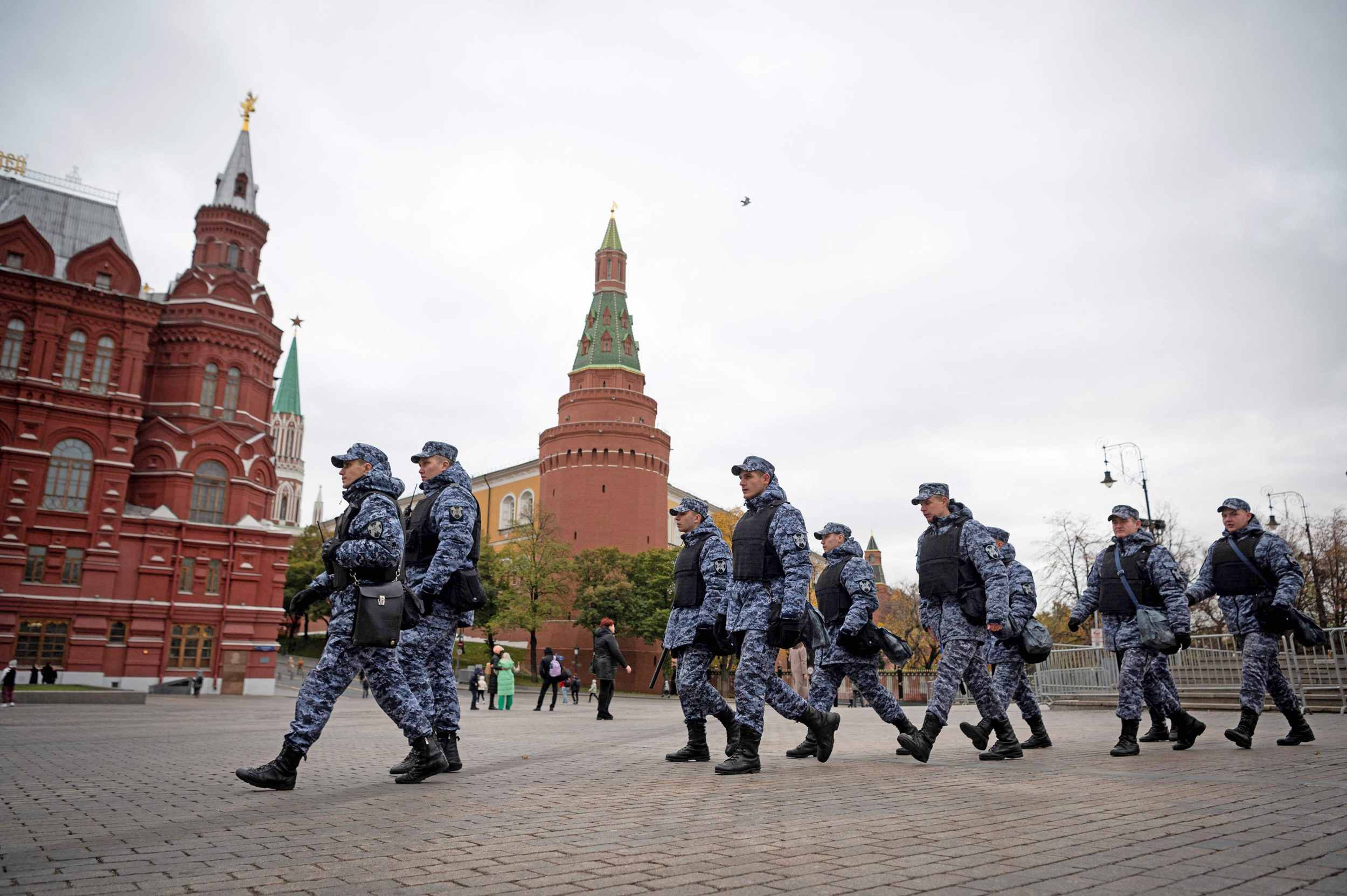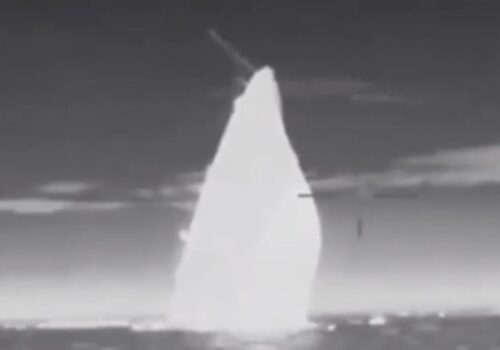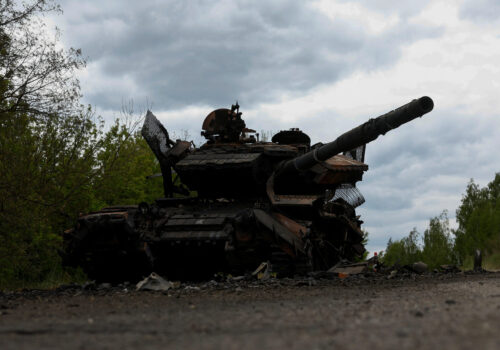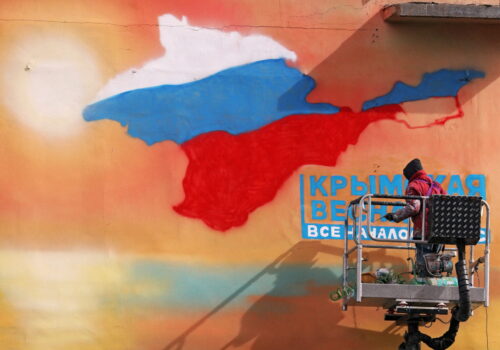As perhaps the most pro-Kremlin and anti-Western leader of any EU or NATO member state, Hungarian Prime Minister Viktor Orban makes for an unlikely mediator in efforts to end Russia’s war in Ukraine. This did not prevent the Hungarian leader from embarking on an ambitious series of international visits in early July that he dubbed as a “peace mission.” In the first ten days of July, Orban visited four different countries on three continents, during which he claimed to have held twelve hours of talks with world leaders.
Orban’s intensive bout of shuttle diplomacy began with a visit to Kyiv on July 2, where he met with President Zelenskyy. This was the Hungarian leader’s first trip to neighboring Ukraine since 2015, and came just one day after his country took up the six-month rotating presidency of the Council of the European Union. The presidency, a position which rotates through all EU member states, is designed to coordinate the agenda and chair meetings of EU member state officials. It is limited in power, and the presidency carries no responsibility for representing the EU abroad.
A few days later, Orban was in Moscow for talks with Russian President Vladimir Putin, who he then lavished with praise in an interview with Germany’s WELT Documentary. On July 8, the Hungarian PM was in Beijing to meet with Xi Jinping. He subsequently flew to the US for the annual NATO Summit, before rounding off his diplomatic mission by meeting with US presidential candidate Donald Trump in Florida.
Stay updated
As the world watches the Russian invasion of Ukraine unfold, UkraineAlert delivers the best Atlantic Council expert insight and analysis on Ukraine twice a week directly to your inbox.
While Orban’s globetrotting itinerary was certainly impressive, there is little indication that this diplomatic initiative achieved much beyond generating media buzz and upsetting Hungary’s EU partners. Orban pushed the idea that a ceasefire in Ukraine could “speed up peace talks” and has tried to pitch his peace plan in a letter to European Union leaders, but so far he has faced little enthusiasm and a significant backlash. Crucially, both Zelenskyy and Putin have ruled out an immediate ceasefire.
This lack of progress toward peace might not be a major issue for Orban. Indeed, some believe his recent diplomatic efforts may actually have been designed primarily to strengthen his own position, both domestically and on the international stage. Crucially, it has allowed the Hungarian leader to balance his country between the key global centers of Washington, Beijing, Moscow, and Brussels. It has also served as a welcome backdrop for the creation of the new Patriots for Europe grouping within the European Parliament, as part of Orban’s self-styled effort to “change European politics.”
This international outreach allows Orban to maintain the stability of his own domestic position via continued NATO security, EU funding and market access, cheap Russian energy imports, and Chinese investments. He has been pursuing a similar model since 2010, and has consistently attempted to make himself useful to all key players. In the current geopolitical context, this means playing the role of potential peacemaker in the broader geopolitical confrontation that has emerged as a result of Russia’s full-scale invasion of Ukraine.
Orban’s current peacemaker posturing could prove particularly timely if Donald Trump wins this year’s US presidential election and returns to the White House in January 2025. This would set the stage for a likely increase in tensions between Washington and Beijing, with the Hungarian PM potentially positioned to serve as an intermediary on key issues such as Ukraine peace initiatives.
Critics have accused the Hungarian leader of handing Putin a significant PR victory. At a time when the Russian dictator is eager to demonstrate that he is not internationally isolated, their Moscow meeting was particularly welcome. This explains why Orban was careful to begin his world tour in Kyiv, allowing him to deflect accusations from the West that he is doing the Kremlin’s bidding. Instead, Orban sought to portray his outreach efforts as an example of the “third way” that the current crop of populist European politicians often seek to champion.
There can be little doubt that Orban’s tour was also an attempt to troll the entire EU leadership. By seizing the initiative and unilaterally embarking on high-profile visits to Moscow and Beijing while holding the EU presidency, Orban was hoping to contrast his own dynamic leadership with the perceived indecisiveness of the European Union’s more cautious diplomacy. In doing so, he succeeded in boosting his international profile while causing significant embarrassment in Brussels.
Despite generating much media interest and favorable headlines, it would be wrong to portray Viktor Orban’s peace mission as an unqualified success. At this stage, his peace proposals appear to have little genuine substance, and have so far gained virtually no traction. Nevertheless, the Hungarian leader will likely continue to view the invasion of Ukraine as an opportunity to advance his own balancing act between Russia, China, and the West.
Dmytro Tuzhanskyi is director of the Institute for Central European Strategy. This article is published in his capacity as an analyst of the Institute for Central European Strategy and does not reflect any other institution’s position.
Further reading
The views expressed in UkraineAlert are solely those of the authors and do not necessarily reflect the views of the Atlantic Council, its staff, or its supporters.

The Eurasia Center’s mission is to enhance transatlantic cooperation in promoting stability, democratic values and prosperity in Eurasia, from Eastern Europe and Turkey in the West to the Caucasus, Russia and Central Asia in the East.
Follow us on social media
and support our work
The post Hungarian PM Orban poses as unlikely peacemaker for Russia’s Ukraine war appeared first on Atlantic Council.





